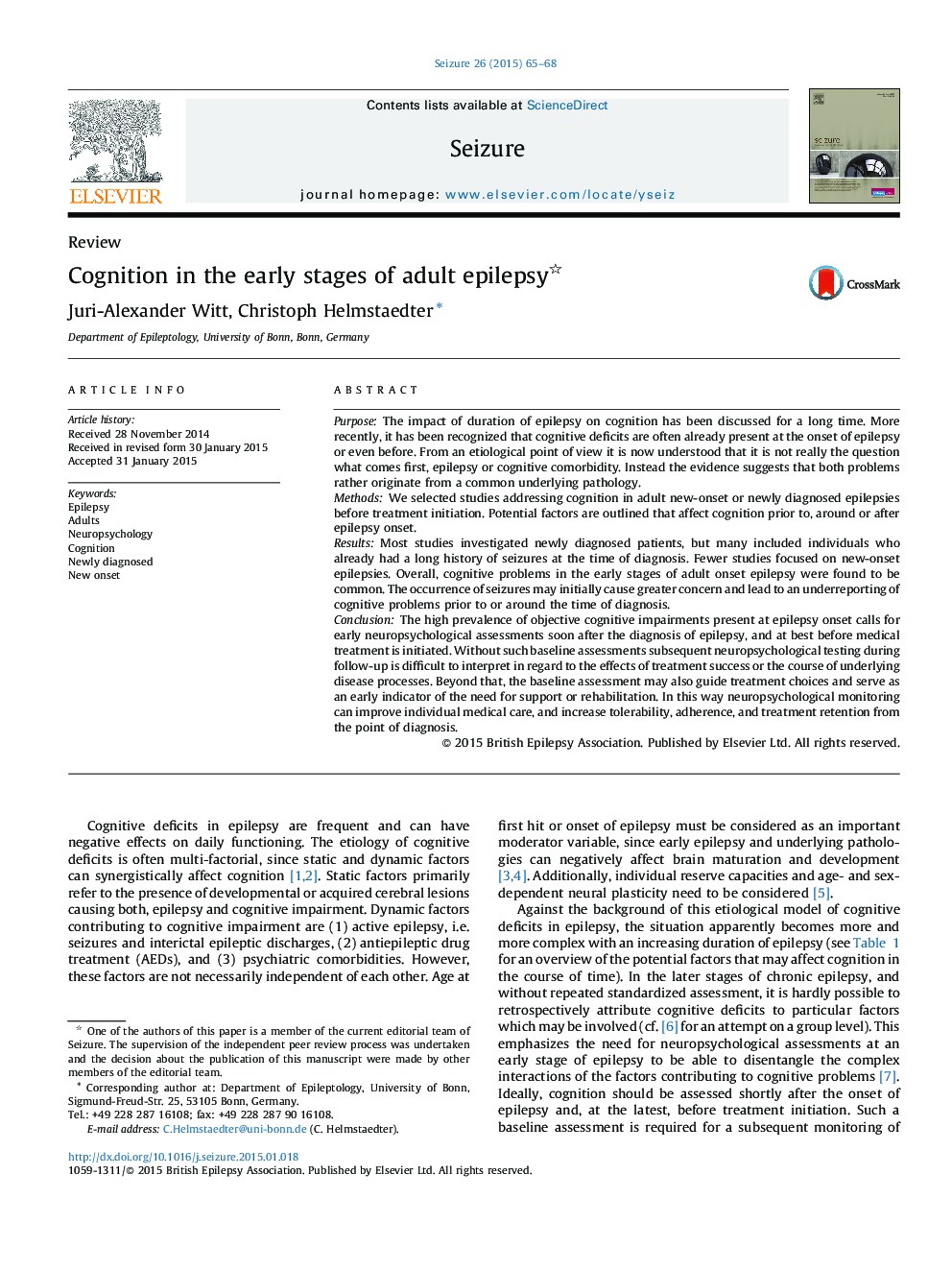| کد مقاله | کد نشریه | سال انتشار | مقاله انگلیسی | نسخه تمام متن |
|---|---|---|---|---|
| 342055 | 548726 | 2015 | 4 صفحه PDF | دانلود رایگان |
• Cognitive impairment represents a major comorbidity of epilepsy.
• Studies in new-onset epilepsies indicate impairment already at epilepsy onset.
• At an early stage of epilepsy cognitive impairment is underreported.
• Baseline screening of cognition is essential to monitor disease and treatment.
• Monitoring cognition may improve individual patient care.
PurposeThe impact of duration of epilepsy on cognition has been discussed for a long time. More recently, it has been recognized that cognitive deficits are often already present at the onset of epilepsy or even before. From an etiological point of view it is now understood that it is not really the question what comes first, epilepsy or cognitive comorbidity. Instead the evidence suggests that both problems rather originate from a common underlying pathology.MethodsWe selected studies addressing cognition in adult new-onset or newly diagnosed epilepsies before treatment initiation. Potential factors are outlined that affect cognition prior to, around or after epilepsy onset.ResultsMost studies investigated newly diagnosed patients, but many included individuals who already had a long history of seizures at the time of diagnosis. Fewer studies focused on new-onset epilepsies. Overall, cognitive problems in the early stages of adult onset epilepsy were found to be common. The occurrence of seizures may initially cause greater concern and lead to an underreporting of cognitive problems prior to or around the time of diagnosis.ConclusionThe high prevalence of objective cognitive impairments present at epilepsy onset calls for early neuropsychological assessments soon after the diagnosis of epilepsy, and at best before medical treatment is initiated. Without such baseline assessments subsequent neuropsychological testing during follow-up is difficult to interpret in regard to the effects of treatment success or the course of underlying disease processes. Beyond that, the baseline assessment may also guide treatment choices and serve as an early indicator of the need for support or rehabilitation. In this way neuropsychological monitoring can improve individual medical care, and increase tolerability, adherence, and treatment retention from the point of diagnosis.
Journal: Seizure - Volume 26, March 2015, Pages 65–68
